Dubai Leadership Education Tours




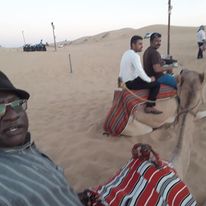
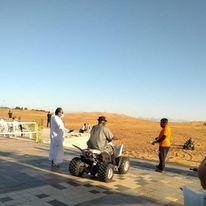



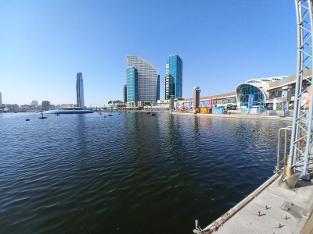
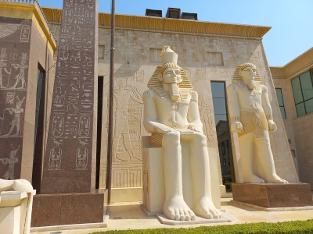
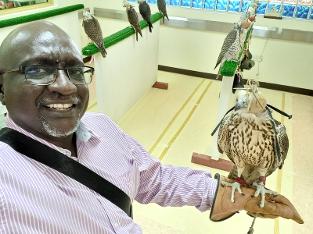

- Need to motivate youth to excel in personal and group leadership for academic & career success
- Motivation for co-curricular and life situations through lifeskills training with a vision for success
- Opening our youth to the larger world through experience
- Strategic academic & career pathway preparation for school & college success
Youth often lack knowledge on identifying personal gifts, talents, skills and abilities – so as to best match these with current academic endeavors and Lifeskills development. Career decisions are often made based on criteria such as academic grades, college placement, guess-work, peer & parental pressure or media exposure and the lack thereof. These totally ignore individual’s inner and best, strategic long term future options.
Sustainably mentoring high school students to perform works best when encouraged to have a vision for success. We propose to offer Educational tours abroad, beginning with Dubai, then South Africa and then New York.
AKAD has successfully offered mentorship solutions over the last 13 years resulting in youth obtaining admissions and scholarships to top world class universities such as Harvard, Stanford, Yale, Brown, Duke and UPenn in the United States. Others have been in the UK, Germany, Japan and Australia.
Local Mentorship and Educational Tours incorporate sightseeing, fun and mentorship to locations such as Dubai, South Africa and New York, USA
Mentorship topics incorporated and discussed include, but are not limited to;
1. Techniques for Reading, Comprehension & Academic Success
2. Confidence building through Profile Writing & presentation; Elevator Pitch
3. Branding; knowing & understanding self, “I am” with Teddy Warria
4. Critical Thinking & Problem Solving
5. Communication: Essays Writing Skills
6. Negotiation; Single & Multiple Party
7. Managing Conflict & Difficult Conversations
8. Public Speaking & Presentation
9. Success Principles; Paradigms, Beliefs & Attitudes
10. Leadership Growth & Development
11. Ideation: Concept Notes in Business entrepreneurship & Starting a Business
12. Job Readiness: CV, Interview & Job Ready Skills
The methodology includes, but is not limited to;
o Socratic fashion with active student participation
o Tailor made engagement to capture interests, passion, skills & talents
o Include our Online Mentorship Portal for strategic follow up at https://akadafrica.com/
o We are happy to track youth and showcase those who are willing in the national media; Radio, TV & Press as done with others over the last 13 years - see our TV media page.

|
Dubai Youth Leadership & Mentorship Tour - AKAD Dec 2022.pdf Size : 707.663 Kb Type : pdf |
The cost per student is calculated based on the prevailing air ticket & third party vendor costs. These includes the following value addition;
1. Pre-departure preparation; meeting mentors, managing expectations
2. Return Air fare; Departure City - DXB
3. Airport transfers; Departure City / Dubai
4. Food and Accommodation
5. Transportation within Dubai, site visits as per list provided in advance
6. Token shopping!!
7. Post return; debriefing with mentors
Kindly note: As and when one has access to their own air ticket solutions, the cost of the tour can simply deduct the equivalent cost of the air ticket from the total due.
How does our Educational Travel add value?
Our theme is Excellence in Career, Education and Value based Leadership; the first two occur only when leadership is invested within its rightful context.
Leader development is a form of individual-based differentiation, helping individuals enhance a unique self-understanding and construct independent identities (Hall & Seibert, 1992; McCauley et al., 1998).
Leadership development can be thought of as an integration strategy by helping people understand how to relate to others, coordinate their efforts, build commitments, and develop extended social networks by applying self-understanding to social and organizational imperatives. Leadership is a continuous process that can take place anywhere (Fulmer, 1997), and requires one to strategically plan how to learn from their school, studies, work and careers.
Why Leadership Development?
Leader development, such as through our Youth training, is primarily based on enhancing the human capital of our students. It is from here that the creation of social capital can occur, so that our youth can live in a climate and environment that delivers their basic needs, let alone their wishes, dreams and aspirations.
Leadership is a source of competitive advantage and worthy of one’s investment socially and organizationally (McCall, 1998; Vicere & Fulmer, 1998). The success of the Asian Tiger economies (like South Korea & Singapore) is proof of the power of proper leadership. This is comparison to the poor leadership on our African continent that has left us poorer, if not worse than we were when our colonial masters left.
There is no reason why our African cities should not be as modern as Dubai, who literally began construction in the 1990's when most African countries had already been independent for 30 years. Poverty, ignorance and disease should have been eliminated long ago. We owe it to our new generations to get this right, not only leaving an inheritance of poor infrastructure, management, disease and apathy. The question is, what are we going to do in the next 50 years in Africa? What will our legacy be?
Our solution: Leadership through Action Learning
This is a continuous process of learning and reflection, supported by colleagues, with a corresponding emphasis on getting things done. Action learning is based on the assumption that people learn most effectively when working on real-time organizational problems (Revans, 1980).
Each application of action learning is unique, with participants collectively sharing realities in a community of practice. Action learning tends to provide a good deal of challenge and support. Students are encouraged to try new things and to trust themselves and others to stretch their thinking and behavior. For maximal effect, action should be accompanied by reflection about the action; otherwise, there is little structured guidance for learning from experience (Froiland, 1994).
Specific examples of intra-personal competence associated with leader development initiatives include;
1. Self-awareness (e.g., emotional awareness, emotional intelligence & self confidence),
2. Self-regulation (e.g., self-control, trustworthiness, adaptability); this is where – for example – our training on Negotiation & Dispute Resolution requires that the students learn how to regulate themselves when in disputes with each other and the authorities. One who can regulate him or herself will not rush at the opportunity cause self or other harm!
3. Self motivation (e.g., commitment, initiative, optimism) – a student who KNOWS why he has come to school, why parents sacrifice to pay fees, will think twice about burning engaging in destructive behaviours to self or others - or destroy long term career prospects (Manz & Sims, 1989; McCauley, 2000; Neck & Manz, 1996; Stewart et al., 1996).
Back to Home page